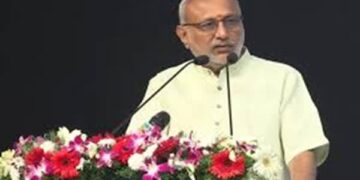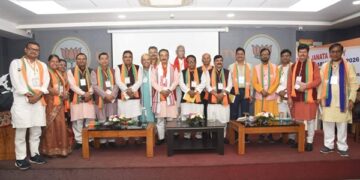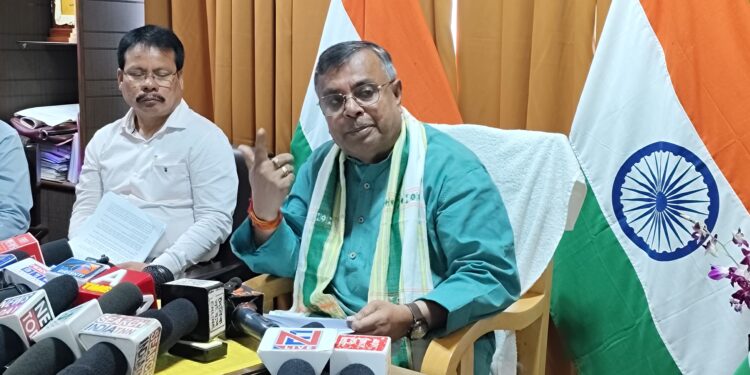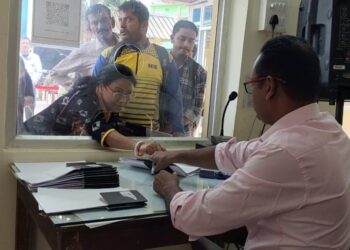Agartala, May 4: In a significant step towards sustainable energy and self-reliance, for the first time in its history the Tripura State Electricity Corporation Limited (TSECL) has begun paying citizens who have installed rooftop solar plants under the Pradhan Mantri Surya Ghar Muft Bijli Yojana, with 70 consumers receiving their first payment for selling surplus electricity back to the grid.
Tripura Power Minister Ratan Lal Nath, who is also a beneficiary of the scheme, announced at a press conference on Sunday that these 70 prosumers collectively earned Rs 30,902 by supplying excess power to the Tripura State Electricity Corporation Limited (TSECL).
He emphasized that the state is prioritizing green energy adoption as part of its long-term commitment to clean, affordable, and decentralized power.
“This initiative ensures not only energy independence but also financial benefits. Earlier, the government, since I am a Minister, used to pay Rs 8,726 as my monthly electricity bill. But now, instead of paying, I have received Rs 768 in my bank account for excess power sold to TSECL from my rooftop solar pant,” said Nath.
Highlighting the popularity of the scheme, the minister informed that 13,536 domestic consumers in the state have already registered through the online portal as of May 1. Of these, 266 rooftop solar plants have been installed, and 184 have received government subsidies, while installations in another 60 households are awaiting portal updates.
To facilitate this green shift, 95 consumers have secured bank loans totaling Rs 1.76 crore for solar plant installations. Nath noted that such loans do not require collateral since the solar system is fixed at the borrower’s residence, and banks are obligated to support this green initiative.
TSECL is currently purchasing surplus solar power at a rate of Rs 2.65 per unit and guarantees to buy the entire excess as per agreement terms.
Each solar plant installation comes with five years of free maintenance and a 25-year warranty on the solar panels.
Nath also pointed out that this will create new employment opportunities in the maintenance and solar services sector.
In a major policy decision, the Tripura government has also resolved to install solar plants across all government buildings in the state through a formal agreement with TSECL, underlining its commitment to energy sustainability and climate resilience.
With such concrete measures, Tripura is emerging as a model state in promoting solar energy and transforming its citizens from mere consumers to empowered energy producers.








































